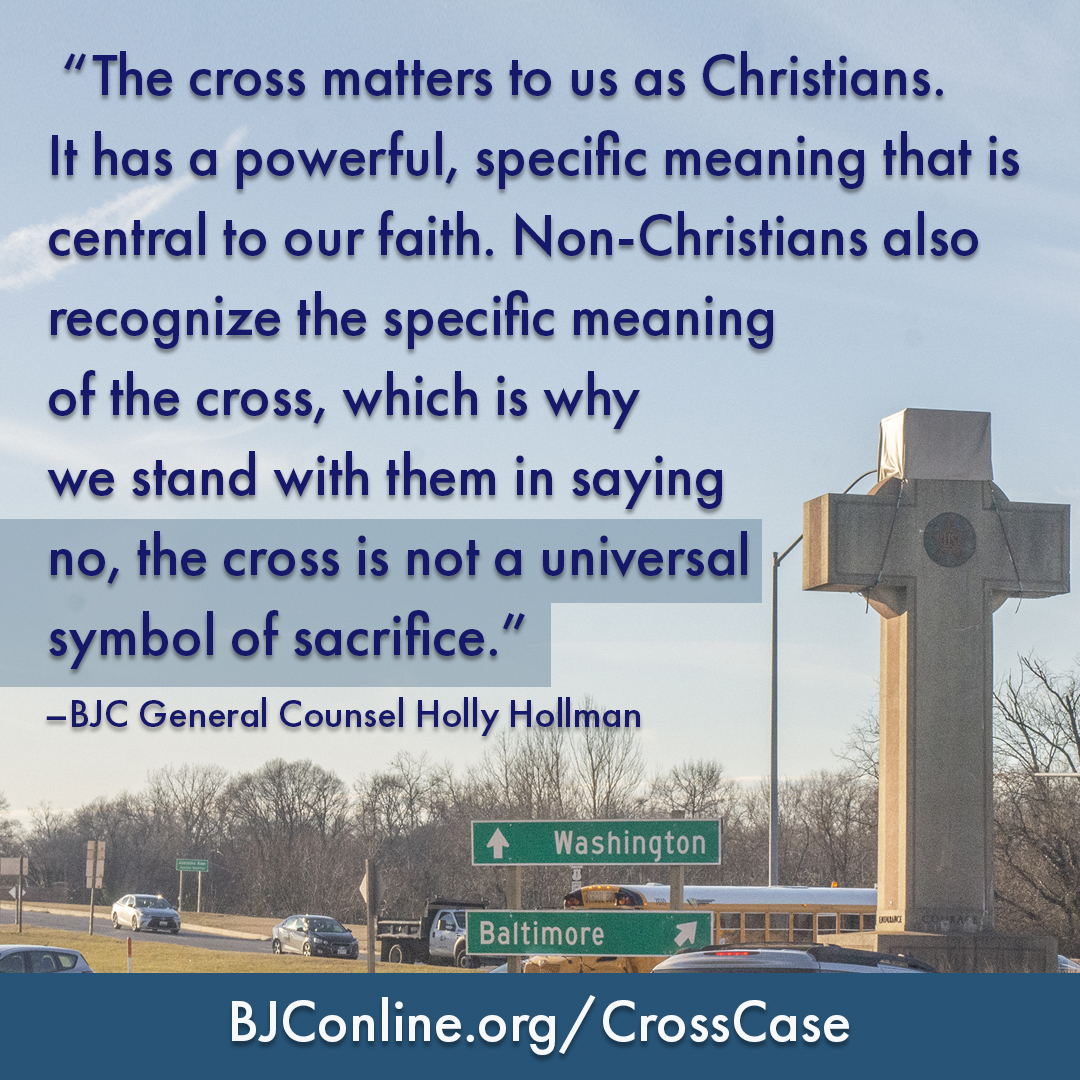Hollman: The cross is not a universal symbol of sacrifice
For Immediate Release: February 27, 2019
Media contact: Cherilyn Crowe / [email protected] / Office: 202-544-4226 / Cell: 202-670-5877
WASHINGTON – A display of the preeminent symbol of Christianity on government land in Bladensburg, Maryland, is unconstitutional, according to the Baptist Joint Committee for Religious Liberty (BJC).
The group filed a friend-of-the-court brief in the case, which was heard today at the U.S. Supreme Court. The brief was joined by other Christian and Jewish organizations.
Holly Hollman, general counsel of the BJC, spoke to media outside of the Court after arguments in The American Legion v. American Humanist Association, sharing the following:
“The importance of honoring the sacrifice of veterans and their families is not disputed. Honoring veterans does not require altering our country’s commitment to religious liberty – a commitment that demands government neutrality among different religious traditions.
The cross matters to us as Christians. It has a powerful, specific meaning that is central to our faith. Non-Christians also recognize the specific meaning of the cross, which is why we stand with them in saying no, the cross is not a universal symbol of sacrifice. The cross symbolizes the story of the resurrection of Jesus Christ, a story not shared outside of Christianity. Its display by the government is unlike the Ten Commandments or temporary holiday displays.
Whatever its intentions, the government’s claim that the cross simply stands for valor to commemorate war dead does not ring true. For Christians who think seriously about the events and message that the cross represents, the government’s claim is deeply offensive. Christians should reject that claim and the short-term perceived gain of preserving a prominent government-sponsored symbol of our faith.
We are fortunate that our constitutional tradition has kept the government largely out of religious matters, leaving ours and other religions free to flourish on the strength of their own merit. We do not need the government to promote our faith nor do we want the government to distort it.”
The BJC’s friend-of-the-court brief was written by church-state scholar Douglas Laycock. The American Jewish Committee, Central Conference of American Rabbis, Evangelical Lutheran Church in America, General Synod of the United Church of Christ, and the Stated Clerk of the General Assembly of the Presbyterian Church (U.S.A.) joined the brief.
A decision in the case is expected by June.
Resources:
To read the amicus brief, see photos of the cross and listen to a podcast with Hollman and BJC Executive Director Amanda Tyler, visit BJConline.org/CrossCase.
Hollman and Marc Stern of the American Jewish Committee wrote an op-ed published by Religion News Service on the case titled, “Christians and Jews agree: The Bladensburg cross is no secular symbol”
###
Based in Washington, D.C., the Baptist Joint Committee for Religious Liberty is an 83-year-old religiously based organization working to defend religious freedom for all people and protect the institutional separation of church and state in the historic Baptist tradition.





